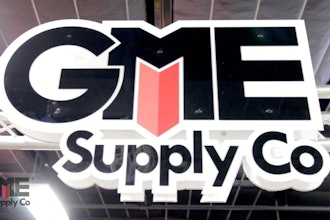How can you collect money from these customers without blowing up at them and losing your cool? Here are some things I’ve learned through my 10 years of working with clients to obtain payment.
by Nanci Hogue, Sr. Cash App. & Billing Specialist, Yaskawa America, Inc.
How do we effectively communicate with our customers, in order for them to understand the position we are in as collectors? We think we need to YELL at them, but the truth is we need to communicate in a more civilized manner.
Collecting money is a job most people don't want. No one likes a confrontation or asking to be paid. For some people, being asked to pay a bill is insulting and can result in defensive behaviors. How can you collect money from these customers without blowing up at them and losing your cool?
Here are some things I’ve learned through my 10 years of working with clients to obtain payment:
Be nice, but also firm. Threaten gently. Let the client know the consequences of not paying on time or not sending a payment at all. Working in the terms "my collections agency" or "my lawyer" early on is a great way to light fires, which is not the best practice. Again, you have to be polite and gentle because being too defensive or aggressive can cause a fight, and a client is more likely to fight you on everything if you aren't polite. At the same time, don't be a pushover. Be reasonable with time limits, but let the client know that you are prepared to call in outside help if he or she cannot produce the payment. Keeping the client abreast of options and consequences allows him or her to understand the severity of the situation.
Offer non-paying clients a payment plan. This serves as an alternative method to show the customer you are willing to compromise in order to get paid. I remind the client that I held up my end of the agreement and produced the work they requested, and would "appreciate" if they could do the same. If you own a cash business, this should not be a problem. If you are in a business that has to extend credit, it is a problem that can have disastrous consequences. I learned early on that just because you have payment terms of 30 days does not mean people will pay you in 30 days. You have to call them, send them a new invoice, and you frequently have to call them again. It is difficult being an amiable salesperson one day and a tough-talking credit collector two months later.
Stop giving credit to anyone who asks. Most companies do have credit cards. If you are selling something that is being resold, or providing a regular service, you probably need to extend credit to be competitive. Make your clients fill out a credit application and provide references. If you are doing this a lot, consider joining one of the credit-rating services. For example, Dunn & Bradstreet is a very reputable company. For a small company with a limited staff, this will add one more burden that is easy to neglect, especially when they are hungry for sales. The only thing worse is spending a lot of time “trying” to collect money. An experienced business owner knows that the job is not done when the product is shipped or the service delivered, it’s when he gets get paid.
Other Easy Payment Options. Let them know that they can call you to make a payment over the phone with a credit card or debit card. This is a good option. Provide them with your website address if you have a feature that will allow them to pay the their account online. Check by phone is also more commonly being used. Customers can fax or e-mail a copy of their check in which you can process on line through a secured website. In most cases you will receive the funds within 24-48 hours.
Build a good relationship. Communicate immediately with a past due customer via an invoice copy and a computer generated message. Follow this up with a phone call. Creating that kind of relationship with the account payable person is very beneficial. Get to know the accounts payable team personally. If they like you, it is likely you will get paid first. Keep detailed collections notes of all promises made and follow up if there ever is a broken promise.
Listen. Having a plan prior to making a collection call is crucial. Remember that the person is probably embarrassed, stressed, and will likely become defensive when you ask him or her to pay. Being prepared for this will put you ahead of the game. A little patience and understanding go a very long way. When customers are explaining to you why they have not paid or cannot pay, keep quiet and listen. No matter how much you want to interrupt, give them a chance to explain. Sometimes they will calm down just because you listened to them and they were able to vent. When they are done, address the problem and offer a solution--or a couple, if you can.
Credit collection is not pretty, fun, or for the faint of heart. There are people who are short of money, people who just don’t like to pay, and people who are going broke. It is not always easy to tell the difference. There are people who will not pay unless you keep calling them. They most likely have a long list of creditors beyond you that they are not paying. The creditor who engages them the most will probably be the one that gets paid. In this case, patience is not a virtue, it is a liability. In some cases, it is not worth doing business with them. But it can be worth it. Don’t give up on those people who are sticklers about paying. Keep reminding them of their obligation and find a way to make it simple for them to pay up. Be patient to a point, but don’t let them slide!

















